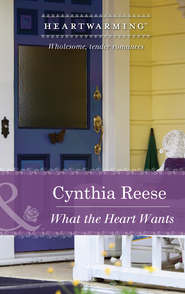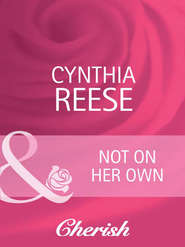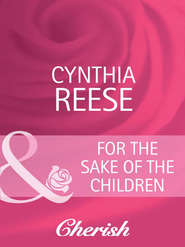По всем вопросам обращайтесь на: info@litportal.ru
(©) 2003-2025.
✖
Secret Santa
Автор
Год написания книги
2019
Настройки чтения
Размер шрифта
Высота строк
Поля
CHAPTER TWENTY-FOUR (#litres_trial_promo)
CHAPTER TWENTY-FIVE (#litres_trial_promo)
CHAPTER ONE
“YOU’RE NOT ASLEEP, are you?”
Dr. Charli Prescott snapped to attention from the doorjamb she’d been propped against. “’Course not,” she muttered to her amused-looking nurse, Lainey Edge. “Why on earth would I want to sleep? I’ve had the luxurious amount of two hours of sleep for three straight nights. If those new E.R. guys don’t get in here soon, though, I will be sleeping standing up.”
Lainey laughed and slapped a stack of charts in Charli’s hand. “Good to know, because there’s a broken arm from a ladder fall in Bay 2, and you’ve still got to sign off on discharge for Food Poisoning in Bay 1. Oh, and your dad says Knife Guy in the trauma room can go home.”
Charli had just caught the name of Broken Arm—Neil Bailey—on his chart when Lainey’s last words caught her. “Hey!” she hollered after the departing Lainey. “Knife Guy—” She stopped herself from breaking about a thousand privacy violations and closed the gap between her and Lainey. “I wanted Knife Guy—I mean, Mr. Anderson—admitted,” she told her. “I signed the admission paperwork. At least overnight. He could have sepsis.”
“Yeah, but your dad—”
“Is an old coot who likes to fly by the seat of his pants, and I don’t care if he is my new boss and the hospital’s chief of staff. Both of us are sleep deprived because somebody ran off all the E.R. docs and thought we could handle the E.R. until the staffing service cried uncle. We may miss something, and a twenty-three-hour admit is a good way to be sure we haven’t.”
Lainey looked about as excited at the prospect of getting in the middle of the brewing battle between Charli and Dr. Chuck Prescott as she would about going on a fast. “Look, he’s my boss—and yours, too. So before we put Knife Guy on the floor, can you talk to your dad?”
From behind them, the sounds of Food Poisoning’s retching came through the striped curtains dividing the hospital bays. Broken Arm, next door, called out, “Hey, I think my neighbor might need some help here! If you’re not going to get around to seeing me, could you help him? Please?”
Charli and Lainey exchanged a long weary glance. “I’ll call custodial,” Lainey said. “You sure Food Poisoning’s able to go home?”
“Yeah, not dehydrated yet—just be sure he gets some Phenergan before he leaves. He says he wants to go—that he can throw up at home as well as here. Got some sort of phobia about throwing up in public. I guess he should have thought of that when he ate week-old potato salad.” Charli shook her head to clear the cobwebs and skimmed Broken Arm’s chart. She hadn’t felt this tired since her first few weeks of med school.
“Okay, then, Food Poisoning’s chart’s on the bottom.”
Charli riffled through the charts and scrawled her signature in the requisite places. “Make sure he knows he can come back,” she told Lainey. She headed toward Broken Arm—Neil Bailey.
“Oh, you might want to do something with your hair,” Lainey told her in that understated tone a woman used that meant there was either broccoli in your teeth or toilet tissue hanging out of your skirt.
Charli reached up and assessed the damage. Half the ponytail she’d snatched her hair into that morning—just that morning? It felt like a million years ago—was tumbling out of its rubber band. She used the glass of the trauma bay door as a mirror, and yanked the mess into some semblance of order. Ordinarily her straight hair was tidy and presentable, but now it looked as if she’d been dragged through a bush backward. Giving up, she turned from the door, where she could still hear Knife Guy singing a drunken version of “Walking After Midnight” by Patsy Cline, and didn’t bother to suppress her yawn.
Snatching back the striped curtain, Charli pasted a smile on her face. “Well, Mr. Bailey, I’m sorry for the wait, but as you can see, we’ve been a bit busy this evening. I understand you fell off a ladder? How high were you? Did you hit your head?”
Neil Bailey was a lanky fellow about her age with rumpled brownish-blond hair who would have looked quite attractive if he hadn’t been grimacing in pain and wearing a paint-spattered hoodie and jeans that looked as though they had been gnawed on by a rat. Charli didn’t wait for him to start his story before checking his pupils for signs of concussion.
“No luck on the negotiations between the E.R. staffing firm and the hospital?” Bailey asked over a quick intake of breath as she began examining his arm.
Charli paused, surprised. “What do you know about any negotiations?”
“Should have introduced myself...” He awkwardly extended his good hand, which was his right one. “Hi, I’m Neil Bailey, editor of the Brevis Bugle. I know Dr. Prescott—that would be your dad, right? He got into another tiff with the staffing firm. Anyway, I covered the emergency meeting of the hospital authority board that authorized the hospital to pay you and your dad to handle the E.R. until the hospital could negotiate with the firm or get someone else in.”
She gave the proffered hand a quick shake, while she checked that arm to be sure it was injury-free, as well. It was a very nicely constructed arm, with just the right amount of biceps and defined muscles. Charli yanked her thoughts away from their unprofessional admiration of his physique and continued with her assessment.
“Well, Neil Bailey, editor of the Brevis Bugle, it’s obvious you don’t have any signs of memory loss or head trauma.”
“You didn’t answer my question about the negotiations.”
“No comment. That’s my answer. You can ask my dad—Dr. Prescott. Or the hospital authority board.” She went back to looking at his injured arm, then stepped over to the computer and called up his X-rays. The ulna had a nice clean break, with an additional textbook Colles fracture to the distal radial. She came back to the gurney and poked and prodded, checking his fingers and evaluating the swelling. She raised his arm to check his shoulder movement. “You’re not a diabetic, are you? How did you fall off a ladder?”
“Ow! Sorry, sorry, don’t mean to be a wimp. Not a diabetic. The fall sounds more dramatic than it really was. I was almost to the ground and stepped wrong. I tried to catch myself. So it’s broken, huh?”
Charli couldn’t help smiling back at his rueful grin. She’d always been a sucker for dimples. And he had very nice dimples.
“Yep, ’fraid so,” she said. “I’ll put a temporary splint on it tonight and get you a referral to an orthopedic surgeon—”
The curtains behind her snapped open. “No need for a referral,” Dr. Chuck Prescott boomed. “He can come by the office and I’ll take care of it. Go ahead and put a permanent cast on it tonight, though.”
The easy moment between Charli and Neil evaporated. Charli closed her eyes and rubbed her forehead, her headache surging forward again. “Excuse me, Dr. Prescott,” she ground out. “This is my patient.”
“Neil? You trust me, don’t you? If I tell you that you don’t need a bone-and-joint doc, you’re okay, right?” her father said, winking. At the wink, Charli thought she’d self-combust with anger. For two weeks, her father had been waltzing into her treatment areas and second-guessing her. This time, though, she was too tired and too frustrated to let it go.
“He’s a writer,” she said. “He needs full use of his hand, which will require physical therapy, and the break needs to be evaluated by someone who can give him optimum care—”
“Do you hear her?” Her father shook his head. “New doctors. They’re all alike, even my own flesh and blood. They sound like they’re reading out of a med school textbook. What she means is she doesn’t want you to sue her if you can’t bend your elbow the full extension once it heals.”
“Have you even looked at—” Before any other hot words of defense could leap out of Charli’s mouth, she jabbed a finger. “Outside.”
“Oooh, don’t write about this, Neil, but I think she’s taking me to the woodshed.” Her father waggled his eyebrows, bushy and gray, over eyes that sparkled.
Beyond the curtain, Charli marched down to the staff lounge. Anna, one of the nurses, quickly cleared out once she saw who Charli had with her. “Uh, I’ll let you two talk,” she muttered as she swept by with her half-eaten sandwich.
The lounge, like the rest of the hospital, was tiny, worn and had last seen a decorator somewhere around 1980. Her father pulled out one of the folding metal chairs and sat down.
As he did, his phone buzzed. He fished it out of his pocket, glanced at it, frowned and stabbed at the touch screen. His face cleared. “It’s Lige Whitaker. Well, he can wait.” His tone was entirely more cavalier than Charli would have treated their chairman of the hospital authority—their boss’s boss.
Her father pocketed the phone again. He leaned back against the chair. “This is where you tell me that I’m an old fogey, and that medicine has completely changed since I got out of med school myself a hundred years ago, and that specialists are specialists for a reason.” His lips twitched at the corner with barely concealed amusement. “I agree. Guilty on all counts.” With his foot, he shoved the chair beside him away from the table. “Have a seat. Now that you’re a doctor, you’ll need to learn to sit when you can.”
She crossed her arms. The chair was tempting to her aching feet, but she ignored it and her father’s good-old-boy charm, which he always pulled out as his weapon of choice. “No,” she said firmly. “This is where I tell you that the next time you undermine me with a patient is when I walk out. What you did—what you have been doing—is disrespectful and not professional. Emory University—along with Georgia Health Sciences, not to mention Memorial in Savannah—are convinced that I am a physician. So is the state board. You may have got away with treating other doctors like this—and the way you treat your nurses is like something you’d see on a 1980s soap opera, by the way—but you will not treat me with professional discourtesy.”
Her father wrinkled his nose. “Thank God some of those shows are off the air. All those subdural hematomas and amnesias and people waking up perfectly fine out of months-long comas bugged the stew out of me. Fake doctors.”
“I’m referring to the way those fake doctors treated their fake nurses, Dad.”
The older Dr. Prescott opened his mouth, shut it, fiddled with his stethoscope. “I’m that bad? I can’t be. I haven’t pinched a gal on the backside in a decade.”
Charli sent her eyes heavenward. Leave it to her father to think that simply avoiding overt sexual harassment was enough to prevent him from being gender-biased. “You’re lucky you’re the chief of staff at this hospital, Dad. Otherwise, you’d have been a frequent flyer in sensitivity training—and only if you’d had an understanding chief of staff.”
He ran a hand over his rumpled silver hair. Suddenly, Charli could see all of her father’s sixty-seven years in the lines of his face. “Dad...”
“Nope, give it to me straight. Cut me no quarter just because I’m your old man.” He held up his hands to forestall any softening in her stance. “I admit, I could probably do with a few of those sensitivity training sessions. I am an old fogey, but I can learn. And that in there—I was trying to save the poor guy money. He has high-deductible insurance that pays practically nothing. That’s what you young punks can’t get in your head—you think just because you have all this medical technology available you need to use it.” He must have seen her anger as it rekindled and realized his apology was going off the rails. “But you’re right. I’d have had your head if you’d pulled the same stunt on me.”
Her father stood up, back straight, lab coat amazingly still showing the creases her mother had lovingly pressed into it that morning. “Apology accepted?”
“Yes,” she said. “And by the way...Knife Guy? He’s staying.”
“You’re going to break this hospital, you know that? Knife Guy’s got no insurance.”











